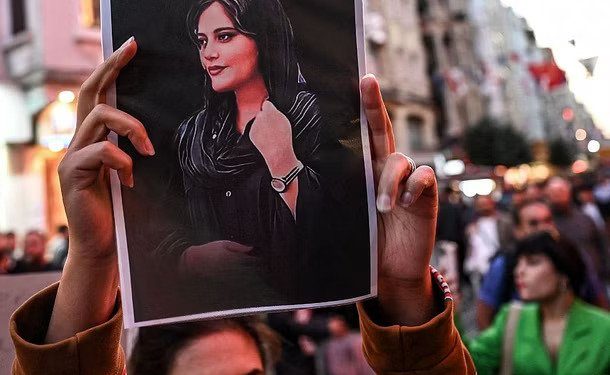A seemingly off the cuff remark by Iran’s Attorney General Mohammad Jafar Montazeri that the Iranian morality police was being “disbanded” is now being interpreted not as a sign of the regime succumbing to pressure exerted by protesters, but as kite flying. Protesters and international communities are not prepared to buy the argument that the orthodox regime has had a change of heart after protests erupted against the killing of a 22-year-old Kurdish woman, Mahsa Amini, by the morality police. Global attention has been drawn to the plight of Iranian women being forced to follow a strict dress code including wearing of hijab. Iran’s soccer team brought focus to the issue recently by not singing their national anthem before the opening match of FIFA World Cup at Qatar in solidarity with their protesting countrymen.
Iran’s state media was quick to rebut the Attorney General’s comment about disbanding the morality police, while the protesters denounced it as a public relations stunt by the regime to break the movement against the authorities’ denial of freedom to the people, especially women and the continuing economic crisis.
The Attorney General said during a religious conference late last week that the Iranian morality police had been “disbanded”. International media and advocates of freedom for Iranian women hailed the announcement as a victory for Iranians protesting against the government for months. However, the very next day, state media sought to downplay Montazeri’s comments, saying that the morality police do not fall under the authority of the judiciary. As such, his comments had no bearing on ground reality. Iran’s state television – Al-Alam – decried initial attempts by foreign media to interpret Montazeri’s comments as a climbdown on the part of the Islamic Republic from its stance on hijab and religious morality as a result of the protests. “No official of the Islamic Republic of Iran has said that the Guidance Patrol has been shut,” Al-Alam said.
It is true the decision to disband the morality police technically lies with the Supreme Council of Cultural Revolution, set up in the early 1980s by Iran’s first Supreme Leader Ruhollah Khomeini. It is now headed by the orthodox President Ebrahim Raisi.
Montazeri’s comments fuelled speculation about the regime relenting in the face of the protests since the pro-reform media outlet Entekhab reported him saying that Iran’s parliament and judiciary were reviewing the country’s mandatory hijab law put in place in 1983.
The morality police earned notoriety for allegedly terrorizing citizens and implementing Iran’s hijab law with an iron hand. Significantly, however, since protesters launched agitation the morality police reportedly disappeared from the streets of Tehran.
This further emboldened Iranian women to disobey the dress codes imposed on them.
But, the morality police’s absence from the streets is hardly going to assuage the feelings of the agitators who are clamouring for fundamental changes in the regime for getting more liberty and a stronger economy. What is ominous for the regime is that the protesters are now chanting on the streets the slogan – ‘the Islamic Republic should go.’
If the Attorney General’s remark had the tacit approval of the regime, it would mean the latter simply wants to dissociate itself from the infamy of the instrument of torture that the morality police has become. At the same time, it would continue to maintain its tight control over mandatory hijab. The law official in that case, it appears, is being used as a sounding board to test how far the protesters can go.
The only official statement made at this stage is by Iranian Foreign Minister Hossein Amir-Abdollahian who during a visit to Serbia neither confirmed nor denied that the Attorney General’s remark was correct. He said, “In Iran, everything is moving forward well in the framework of democracy and freedom.” This is of course a diplomatic verbiage.
Women in Iran are now not much bothered about whether there is a hijab or not, as a protester put it. They have been going without it for the past 70 days and they demand nothing short of “a revolution and regime change.” They may sound too ambitious despite international backing. As US Secretary of State Antony Blinken said the abolition of Iran’s morality police could be “a positive thing” and praised the “extraordinary courage of Iranian young people, especially women, who have been leading these protests.” For sure, a grim struggle is ahead.






































